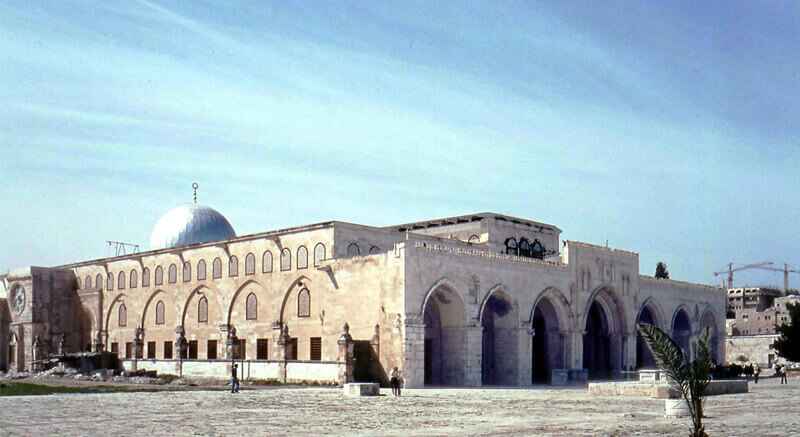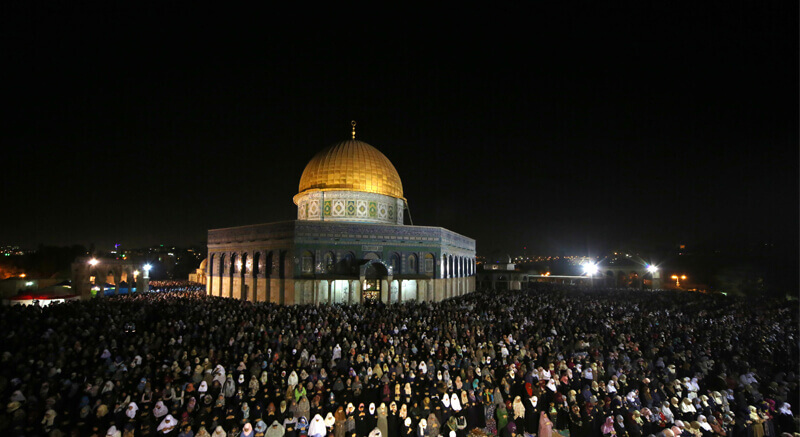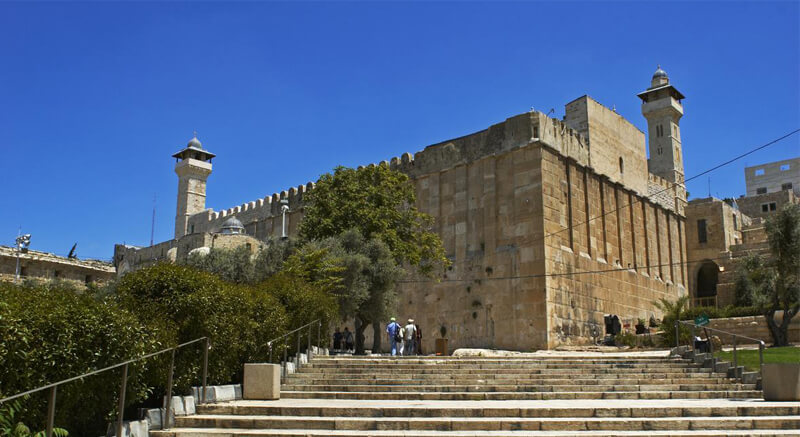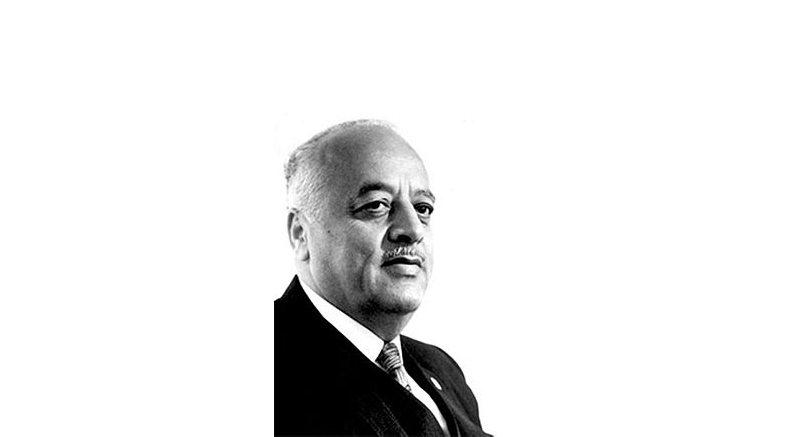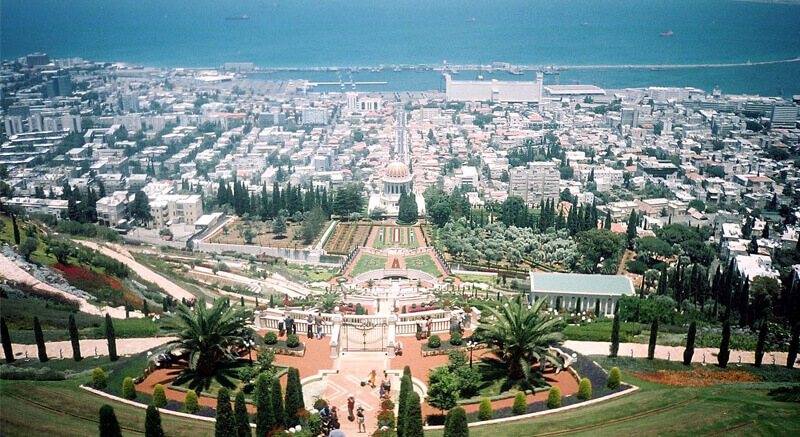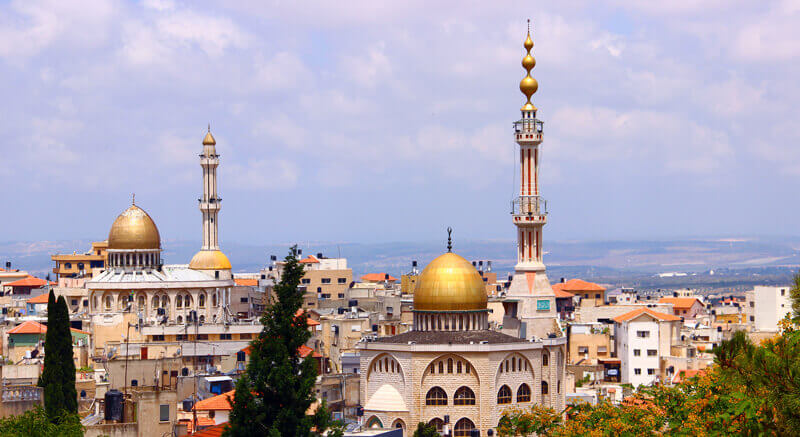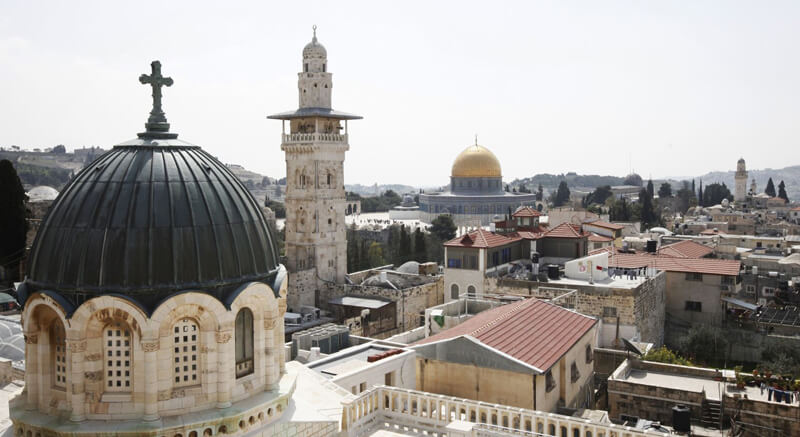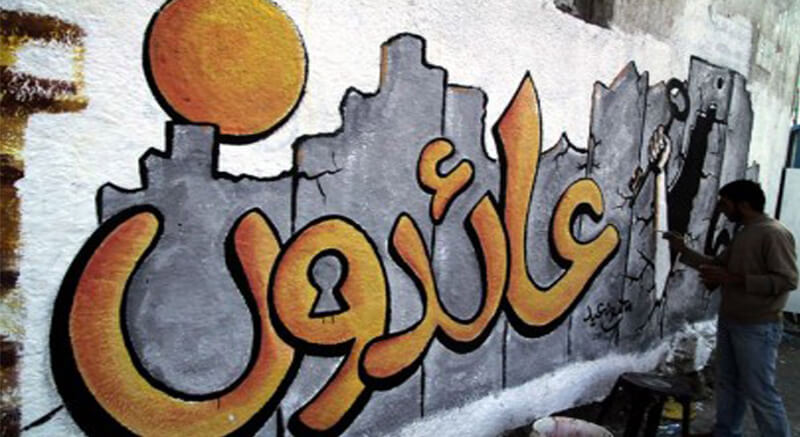Register of Racist Laws in Support of the Occupation and Settlement Activity
Register of Racist Laws in Support of the Occupation and Settlement Activity
Second Annual Report - Knesset 20
Summer Session 2015 – Winter Session 2017
Monitored and presented by BarhoumJaraysi
Palestinian Forum for Israeli Studies (MADAR), Ramallah, in cooperation with the Negotiations Affairs Department, Palestine LiberationOrganisation
April 2017
Introduction
The Second Annual Report on Racist Laws in Support of the Occupation and Settlement Activity reflects the state of escalating and rampant extremism at the top of the Israeli political hierarchy, including the legislative authority (Knesset) and executive authority (government). What was seen as an “unprecedented peak” in the first report, which was released one year after the last parliamentary elections had been held and submitted in April 2016, is now a matter of the past.
According to the first report, 66 laws, including six approved in the final reading, were enacted. By contract, the second parliamentary year (eight working months) were “enough” to increase the reported peak to 136 laws, including 25 approved in the final reading. Of these, 21 regulations were integrated into official laws and another four incorporated as sections within three laws. One law is still in the first reading and 14 in the preliminary reading stages. Three laws were suspended and replaced by another. This was the law on the expropriation of private land in the West Bank -the so-called “Settlements Law”.
By comparison, in its 17thSession (2006-09), the Knesset approved six laws in the final reading. In the 18th Knesset Session (2009-13), the final versions of eight laws were approved. Over a period of two parliamentary years, the Knesset endorsed a total of 24 laws. All indications show that the number of laws will continue to rise until the next elections.
A review of laws shows a significant acceleration and competition among members of the Knesset (MKs) to introduce more laws in the immediate interest of settlement activity. A total of 37 regulations have been initiated, including 30 laws designed to establish the so-called “Israeli sovereignty” over settlements, or the West Bank in its entirety. These include three laws, which were suspended after they had been approved in the preliminary reading, and replaced by the land grab law-the so-called “Settlements Law”. This body of legislation does not include laws on combating the boycott of settlements (see the table below)as well as laws targeting human rights organisations and foreign activists.
At the request of Prime Minister Benyamin Netanyahu, the government called on the Knesset to hold an extraordinary session during the Spring Recess. On 5 April 2017, the Knesset convened to approve in a final reading a law on “unlicensed construction”, targeting Palestinians of the 1948 territory. Due to limitedconstructionareas, Palestinians are involuntarily forced to build their own homes. The law threatens thousands of Palestinian homes and allows for issuing an increasing number of demolition orders. Depriving Palestinians of trials to suspend demolition orders, the law imposes exorbitant fines on the owners of affected homes.
During the Winter Session (2016-17), moretotalitarian and tyrannical laws were enacted against all opponents of government policies and agenda of the coalition government. At the forefront of draft law was the Draft Law on the Prohibition of the Call to Prayers (Muezzin Bill), of which the Knesset approved a comprehensive in a preliminary reading. The Knesset also approved “abridged” version, which restricts the scope of the law to the dawn call to prayer. Also targeting some Christian denominations, however, effective enforcement of the law will cover church bells that ring at 6:00 am every day. In spite of verbal opposition within the coalition government, Netanyahu supports enacting a comprehensive version of the law. Passing and enforcing this law will have serious implications, particularly in the occupied city of Jerusalem as well as in the coastal, Jewish-majority cities of Historic Palestine, including Jaffa, Haifa, Acre, Lod and Ramlah.
A review of initiatives and voting for laws at various stages showsan entrenched complicity and effective participation of opposition blocs, namely the Zionist Camp and YeshAtid (There is a Future). The latter showed a greater identification with, and engagement in,the far-rightwing projects.
Similar to a quest for a certificate of “good conduct” in thefar-right camp,initiatives to introduce draft laws on the Knesset agenda reveal a competition between MKs. Hence, on many occasions, several laws with one version or one goal have been proposed. However, each law is proposed by a MK or a group of MKs with a view to gaining political momentum.
The law making process is not limited to far-right MKs, including the Likud and coalition of settler parties (Jewish Home). It also involves those considered in the political arena as the “moderate right wing” or “centre”, such as Kulanu (All of Us) led by the Minister of Finance Moshe Kahlon. Although they do not take the initiative to propose racist laws in support of the occupation and settlement activity, MKs of ultraorthodox (Haredi) parties, including Shas and United Torah Judaism (YahadutHatorah),do participate in the enactment of some laws, showing full harmony with the far-right camp. In the past, Haredi parties used to maintain some distance from these political initiatives. However, far-right transformations, particularly over years of the right wing among the Haredi public, have reflected more on the performance of Haredi MKs.
As mentioned above, the most racist law in support of the occupation and settlement activity, which this report does not address, is the Annual General Budget Law, which the Knesset regularly approves. Budget appropriations mark a deep-rooted policy of racial discrimination, war, occupation and settlement activity.
The pace of draft laws and law making process prove that this tremendous number of laws does not indicate a ceiling or barrier that would put an end to these flood of legislation.
Definition of laws
In line with a broad definition, a racist law in support of the occupation and settlement activity is everypiece of legislation, which targets Palestinians as Palestinians wherever they exist. It can be either a direct or indirect law. Although they look like amendments of criminal laws, these laws are enacted against the background of political events. Reflecting a policy of racial discrimination and political persecution, these laws restrict political freedoms and political action. Initiatives are triggered to supportthe occupation, promote and legalise settlement activity, and impose the so-called “Israeli sovereignty” over the occupied West Bank.
A two-year review of this body of laws shows that these initiatives have quickly ensued political events. Of particular note, during the Winter Knesset Session (2016-17), MK Basel Ghattas of the Joint List was charged with smuggling cellular telephones to prisoners in Israeli detention camps. In effect, MKs of both the coalition and the opposition proposed six laws targeting Arab MKs. For example, a law allows that a MK who is suspected in security cases be immediately detained. Another law provides for suspending salaries of those MKs indicted in security cases.
Hagai Elad, Director General of the Israeli Information Center for Human Rights in the Occupied Territories (B’tselem), appeared before the United Nations Security Council and presented an anti-settlement report, addressing aspects of Palestinian life under occupation. Consequently, three laws were proposed to tighten the grip on human rights centres and peace organisations. Approved in a final reading, one law was incorporated as a section within a relevant law. While another was approved in a preliminary reading, a third law is still on the Knesset agenda.
Prime Minister Netanyahu falsely announced that wild fires that erupted in late 2016 were caused by “terrorist acts”. A draft law was immediately proposed,raisingthe penalties for arson on terrorist grounds. Examples are numerous.
Although they would not be enacted,dozens of laws will continue to be listed on the Knesset agenda. Nevertheless, this large number of laws, underlying initiatives and political discourse that marks relevant explanatory notes reflect a state of uncheckedracist incitement against the Palestinian people wherever they reside.
A list of finally approved racist laws in support of the occupation and settlement activity
7 May 2015 - 22 March 2017
|
|
Title of Law |
Data of final approval |
Initiative taken by |
Details |
|
|
Laws approved in the final reading |
|
|
|
|
1. |
Law on forced feeding |
July 2015 |
Government |
Developed by the Ministry of Justice of the former Netanyahu Government (2013-14), this law was proposed to confront hunger strike declared by Palestinian prisoners in Israeli detention camps. The law sparked wide-ranging opposition by human rights organisations and the Israeli Medical Association. Although the government insisted to approve it, the law has not been applied to any prisoners on hunger strike until the time of reporting. |
|
2. |
Law on raising penalties against stone throwers: A maximum penalty ranging from 5 to 20 years |
July 2015 |
Government |
Developed by the Ministry of Justice of the former Netanyahu Government (2013-14), this law was introduced to deter popular confrontations, particularly in Jerusalem and the 1948 territory. In the West Bank, harsh sentences are rendered by military courts in line with special regulations. |
|
3. |
Knesset decision on convicting and punishing MKs if they gain access to the Al-Aqsa Mosque at times of security tensions. Knesset decision to prevent MKs from entering the grounds of the Al-Aqsa Mosque compound. Issued by a majority vote by the Parliamentary Ethics Committee, the decision targets Arab MKs. |
3 November 2015 |
Parliamentary Ethics Committee |
In light of the penalties it prescribes, this decision takes the form of a law. It essentially targets and deprives Arab MKs of the right to worship and to access a holy shrine of their own. However, the decision also applies to Jewish MKs, who lead settler gangs that raid the grounds of the Al-Aqsa Mosque compound. The decision continues to be in force until the time of reporting. |
|
4. |
Law on the minimum penalty for stone throwing. The law imposes a minimum sentence of three years in prison. However, the court panel must submit convincing justifications for any lesser sentence. |
3 November 2015 |
Government |
This law complements the Law on the Maximum Penalty for Stone Throwing. It targets Jerusalemites and Palestinians of the 1948 territory. |
|
5. |
Law on physical search |
1 February 2016 |
Government |
This law allows police officers or soldiers, in an area declared by the Police Chief as one of security risks, to physically search any person in the street even if they are not suspects. The final version of the law alleviates these measures in areas with potential domestic violence. However, measures are tightened in the so-called areas of “security risks”. As a temporary order, thislaw is effective for a renewable period of two years. |
|
6. |
Extension of a temporary law for two years, raising penalties against persons who employ or provide a shelter to a Palestinian from the West Bank and Gaza Strip without a permit |
14 March 2016 |
Government |
Amendment No. 26 of the Law on Entry to Israel, providing for extending a temporary law for two more years. The law raises penalties and fines against any person who employs or provides a shelter to a “foreign national” without a permit. The law also empowers police officers in relevant areas to issue orders, prohibiting the use of the place in which that person resides. |
|
7. |
Law on Combating Terrorism |
13 June 2016 |
Government |
This broad and complex law views resistance of the occupation and racial discrimination policy as “terrorism”. It vests Israeli security agencies with broad powers for prosecution, restriction of freedoms, raids on properties, etc. |
|
x |
A law drawing a distinction between incitement to terrorism and violence. This law draws a dividing line between Palestinian popular resistance and terrorist activity of settler gangs. The latter are mostly termed as “incitement to hatred” with a view to alleviating the impact of settlers crimes and, consequently, prosecutions and sentences. |
13 June 2016 |
Government |
Having been approved in the first reading, this law was integrated into the Terrorism Law. |
|
x |
Approved in a preliminary reading, a law on the inclusion of evidence of conviction with terrorism. |
13 June 2016 |
AnatBerko |
Incorporated within the Terrorism Law |
|
8. |
Extension of a temporary law on the denial of reunion for Arab families |
13 June 2016 |
Government |
The law (order) denies that a permanent residency is granted to a spouse from an Arab family if they are from the West Bank and Gaza Strip or from Arab country or of Arab descent |
|
9. |
A law designed to restrict the movement and activity of human rights organisations |
12 July 2016 |
Government |
A government law targeting human rights associations and centres. The law obliges human rights organisations to state relevant donors in all publications, reports and media campaigns. Statements of spokespersons of these organisations be made in the presence of representatives of official institutions. Restrictive provisions of the law were toned down in the first reading. The condition, which required that each employee of human rights organisations put on a badge bearing their name and donor, was removed. The law was amended in light of opposition of the international community, including the USA. |
|
10. |
Amendment of a law, sentencing a person who incites against a volunteer in the army to five years in prison |
18 July 2016 |
Yoav Kish (Likud) and seven other MKs |
In its final version, the law provides for punishing a person who attempts to convince others who serve in the army, but are not subject to the Compulsory Military Service Law, to take off their military uniform and leave the ranks. |
|
11. |
Two amendments (laws) to the Knesset Basic Law (Law on the Expulsion of Knesset Members) |
19 July 2016 |
Constitution, Law and Justice Committee |
The amendment vestsa 90 percent majority with the power to expel a MK totally from the parliamentary session. Still, the law allows room for appeals before the High Court. |
|
12. |
Law on Minors: Trial, Punishment and Methods of Work |
3 August 2016 |
Government |
The law allows that minors under 14 years of age, who are convicted of murder, be sentenced to prison. The law is temporarily enforced for a period of three years for the purposes of examination. |
|
x |
Law on the Trial and Sentencing of Children under 14 Years of Age to Prison The law provides that those sentenced to prison will be held in a closed institution until they complete 14 years of age |
|
AnatBerko (Likud) with government support |
Approved in the preliminary reading Integrated into the government law, which was approved on 3 August 2016 |
|
13. |
Approval of a temporary law that exempts interrogators from documenting and taking footage of investigations in security issues |
5 December 2016 |
Government |
|
|
14. |
A law on the elevation of the status of military courts |
16 January 2017 |
AnatBerko |
Risks posed by the law: Approves military court decisions in the Israeli civil judicial system to institute cases for compensation in accordance with totalitarian military court decisions. Secondly, in certain cases, military court decisions provide a model for entering similar decisions against Palestinians who hold the Israeli nationality (Palestinians of 1948 territory). This law was dismissed in the first reading of 22 February 2016 by equal votes. After it was proposed by the government once again, the law was approved in the first reading of 21 November 2016. |
|
15 |
“Settlements” Law for the expropriation of private land in the occupied West Bank |
6 February 2017 |
BezalelSmotrich and others |
An amended law, introduced by all those who initiated early drafts of the law. To avoid judicial dispute over this law, it includes an amendment, which excludes the Amona settlement outpost, regarding which a final decision was rendered by the High Court. The law was approved in the preliminary readings of 5 and 8 December 2016. |
|
16. |
A law prohibiting the provision of commercial and other services on the basis of the place of residence (i.e. settlements) |
20 February 2017 |
ShuliMualem |
Amendment of a law, designed to fine every person who refuses to provide commercial, cultural or other services on grounds of the place of residence. The law covers those who boycott settlements, particularly in the arts and culture sectors, and refuse to deliver performances in settlements. The Knesset approved the law in the preliminary reading on 3 February 2016 and first reading on 20 June 2016 |
|
17. |
A law denying visas to a person or institution that calls for the boycotting of Israel |
6 March 2017 |
Government |
The law denies visas to any person or institution that calls for boycotting Israel. Exceptional cases are subject to the discretion of the Minister of Interior. This government law was annexed by draft law No. 1906/20/F, which was submitted by MKs. It was approved in the preliminary reading in mid November 2015. Before the law was enacted, a visa denial policy had already been in place by a decision from the Minister of Interior. The policy was based on undisclosed security assessments. The law now helps the Minister to issue relevant decisions quickly. Later, another Law (No. 1906) was added and approved in the preliminary reading. |
|
x |
A law denying visas to persons or institutions who call for the boycotting of Israel |
|
MK YanonMigal (Jewish Home) with government support |
Approved in the preliminary reading on 12 November 2015 and annexed to an identical government law. |
|
18. |
Approved in the final reading, a law allows courts to withdraw a person’s citizenship without need to appear before the court, but in the presence of their lawyer, if they are abroad |
|
Government |
(This government law allows courts to hear a petition from a person, whose citizenship has been withdrawn, without need for their personal appearance before court if they are abroad, sufficing with their lawyer or a lawyer assigned by the court). |
|
19. |
A law denying nomination for persons who announce support of armed struggle |
14 March 2017 |
OdedForer |
This is an amendment of the effective law, which denies nomination on grounds of supporting armed struggle. Currently, a mere statement of the right to resistance will be a reason to deny nomination. |
|
20 |
Draft Law on National-Civil Services (Prevention of Service in Societies that Receive Donations from a Foreign Country) |
22 March 2017 |
Amir Ohana and David Bitan (Likud) |
Integrated as an item into the comprehensive Civil Service Law, it reiterates several definitions and terms. The law targetsB’tselem after Hagai Elad, B’tselem Director General, appeared before the UN Security Council and submitted a report on settlement activity in the West Bank. The law is a translation of Netanyahu’s announcement at the time. |
|
21 |
A law to accelerate demolition of unlicensed homes |
5 April 2015 Approved in an extraordinary session during the Spring Recess at the government request |
Government |
The law provides a series of regulations and assigns responsibilities to municipal and village councils to implement court decision on the demolition of homes built without construction licences. In the overwhelming majority of cases, Arab homes are targeted by this law. With the first draft approved on 1 August 2016, the law provided for retroactive enforcement to every unlicensed home. 50,000 homes are estimated to be unlicensed. When it was prepared for the final reading, the retroactive effect of the law was annulled. However, a penal clause has been applicable to the use of unlicensed homes for a year and a half since the law was approved in the final reading. The law was approved in an extraordinary session during the Spring Recess. |





